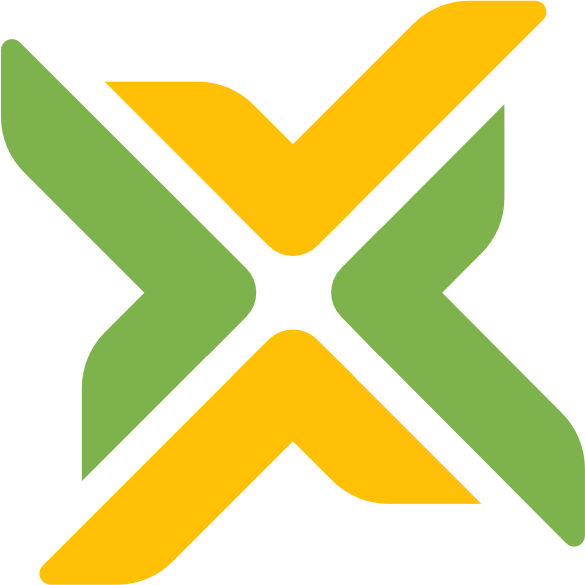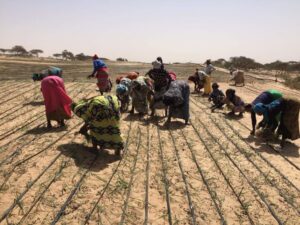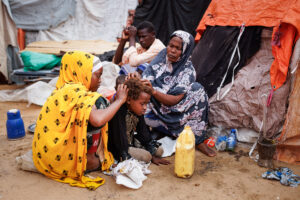Introduction
Economic freedom is vital for entrepreneurship, offering incentives, resources, and opportunities for business development. A less restrictive regulatory framework reduces costs and complexities, easing market entry for entrepreneurs. In Cameroon, time and financial constraints significantly hinder entrepreneurial pursuits, while complex administrative procedures increase costs and impede growth (Wansi and Burrell, 2023). Streamlining company registration, tax filing, and bill payments can reduce corruption costs and encourage entrepreneurship. Promoting economic freedom may depend on digitalizing these processes to enhance public oversight (Adam and Fazekas, 2021).
Digitalization is defined as the process of transforming activities and services into digital formats through the utilization of technological advancements. Digital transformation enhances public services by increasing their speed, accessibility, and personalization while simultaneously reducing costs and delays. Furthermore, it contributes to the improvement of service quality, transparency, and efforts to combat corruption.
This article analyzes the impact of digitalization on economic freedom in Cameroon. It evaluates the opportunities and challenges that digitalization presents, examines its effects on corruption and public administration, and provides policy recommendations aimed at enhancing entrepreneurial liberty through digitalization.
Opportunities of Digitalization in Promoting Economic Freedom in Cameroon
The digitalization process promotes economic freedom by creating opportunities for individuals and businesses. In Cameroon, the government is improving digital infrastructures and literacy through initiatives like the Cameroon Digital Innovation Centre. Simultaneously, the private sector is making substantial investments in digital technology by establishing start-ups designed to accelerate business development.
Digital financial services, including mobile banking and e-wallets, have significantly enhanced access to financial resources in Cameroon. As of early 2024, there were approximately 25.4 million active mobile cellular connections in the country, representing about 87.5% of the total population (Cameroon Digital Report, 2024). The adoption of mobile money services increased notably, rising from 29.9% in 2017 to 42.7% in 2022 among individuals aged 15 and older, according to the 5th Cameroon Household Survey (Ecam 5), published by the National Institute of Statistics (INS). Platforms such as MTN Mobile Money and Orange Money now enable users to conduct transactions, save, and access credit without the need for a traditional bank account. This innovation particularly benefits rural and underserved populations by fostering economic participation and promoting financial independence.
The internet offers access to a vast array of information and global markets, empowering individuals and businesses to make informed decisions and compete on an international scale. At the beginning of 2024, the Digital 2024 report for Cameroon revealed that the country had 12.73 million internet users, resulting in a penetration rate of 43.9%. Additionally, there were 5.05 million social media users, accounting for 17.4% of the population. Digital platforms enhance market research, networking, and skills development, all of which are crucial for economic growth and competitiveness.
Digitalization lowers entry barriers for entrepreneurs and small to medium-sized enterprises (SMEs). Online marketplaces and social media offer cost-effective marketing channels, enabling businesses to reach a wider audience. For instance, Jumia and Kiro’o Games have successfully leveraged digital tools to enhance their market presence.
The digitalization of government services reduces bureaucratic inefficiencies and corruption, aiding citizens in establishing and operating businesses. Initiatives such as the e-Procurement system and online business registration portal enhance efficiency, saving time and costs for entrepreneurs.
Digital platforms also provide diverse educational resources and training programs that enhance skills and knowledge. Initiatives like ICT holiday camps and online courses from Coursera and edX promote continuous learning and professional development, which are vital for economic empowerment.
Impact of Digitalization on Corruption and Public Administration Efficiency
The 2023 report on corruption in Cameroon reveals a loss of 114.03 billion CFA francs, a dramatic increase from the previous year. This is the highest loss in five years, with numerous complaints filed by whistleblowers (Transparency International, 2024). Cameroon is ranked 34th among the most corrupt countries in Africa and 140th out of 180 countries worldwide.
In Cameroon, digitalization has the potential to greatly improve public administration effectiveness and lessen corruption. By encouraging public access to information and reducing the need for face-to-face encounters, which can lead to corrupt practices, digital platforms enhance the transparency of governmental processes. Automating procedures limits officials’ discretion and reduces the possibility of biased decision-making. Additionally, digital records create an audit trail for transaction monitoring, facilitating the detection and redress of corruption.
Digitalization improves the efficiency of governmental procedures, reducing barriers that create opportunities for corruption and bribery. Furthermore, technological advancements bolster the efficiency of data-driven civil society organizations and accountability mechanisms in overseeing government operations. Digital services diminish the likelihood of corrupt interactions between citizens and officials by minimizing the need for in-person engagements.
In summary, digitalization is essential for reducing corruption as it enhances transparency, limits the discretionary power of officials, and strengthens accountability and oversight systems. Public managers now have access to real-time data and analytics, significantly improving their ability to make informed decisions. By leveraging big data and artificial intelligence, governmental organizations can predict outcomes, identify trends, and take proactive measures to address issues before they escalate. This is vital for fostering entrepreneurship and promoting economic freedom within the country.
Challenges to Digitalization in Cameroon
Cameroon’s inadequate digital infrastructure is a major barrier to digitalization, marked by frequent power outages and limited internet access. In 2022, 73% of the population had electricity, but only 25% of rural residents did, compared to 94% in urban areas. High-speed internet is largely unavailable in rural regions, while urban centers like Yaoundé and Douala enjoy better access, creating a significant digital divide. While 4G network coverage in Cameroon is expected to reach 47.98% in 2024, rural internet connectivity may be only 10-15%.
Cameroon’s technology ecosystem is hindered by a restrictive political climate and outdated regulatory frameworks. The absence of clear regulations for emerging technologies, such as fintech and e-commerce, creates uncertainty for businesses and investors. Unlike other African nations, Cameroon lacks a startup act to support startup growth. As a result, bureaucratic barriers slow down the implementation of digital projects.
Cameroon has an untapped data market, but cybersecurity issues impede its potential. In 2020, government websites were hacked, exposing private data and vulnerabilities. Poor cybersecurity undermines public trust and deters investment, especially as much local data is stored overseas. The government must create frameworks to improve interoperability, set standards, and enhance cybersecurity to promote digitalization.
Digital barriers also include consumer unpreparedness largely due to a lack of digital literacy and skills. The country has a significant digital skills deficit, particularly in education, where teachers struggle to use digital tools. A 2021 SODESI report indicates that female students in southwestern Cameroon face more challenges accessing digital education than males. Moreover, educators’ lack of digital skills hampers technology integration in education, restricting digital solutions in sectors like agriculture.
The high costs of digital tools and services limit accessibility for the general public. In Cameroon, internet data remains expensive relative to average incomes, restricting consistent access for many. Moreover, the cost of digital devices like smartphones and computers is prohibitive for a large segment of the population. Surfshark’s 5th annual Digital Quality of Life Index ranks Cameroon 22nd in Africa out of 25 countries and 116th globally in 2023, with a score of 0.23 out of 1. This poor performance hinders digital inclusion and economic freedom.
Conclusion
Countries with greater economic freedom typically have a higher standard of living (Economic Freedom Index Report, 2024). Allowing individuals to make their own economic decisions without government interference fosters competition, innovation, and efficient resource use. Cameroon must prioritize digitalizing its economy to reduce corruption, lower business costs, and enhance public sector performance, which are vital for promoting economic freedom. The following measures should be implemented to achieve these objectives:
- Invest in digital infrastructure in rural areas to enhance internet connectivity and reliability.
- Streamline regulations to boost the digital economy and curb bureaucracy.
- Implement cybersecurity measures to protect data and build trust in digital services.
- Expand digital skills training for workforce success.
- Subsidize digital tools and services to enhance affordability.











